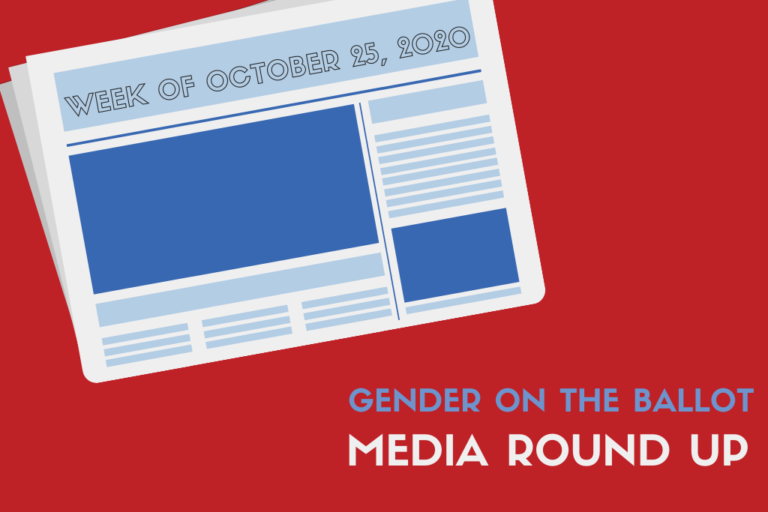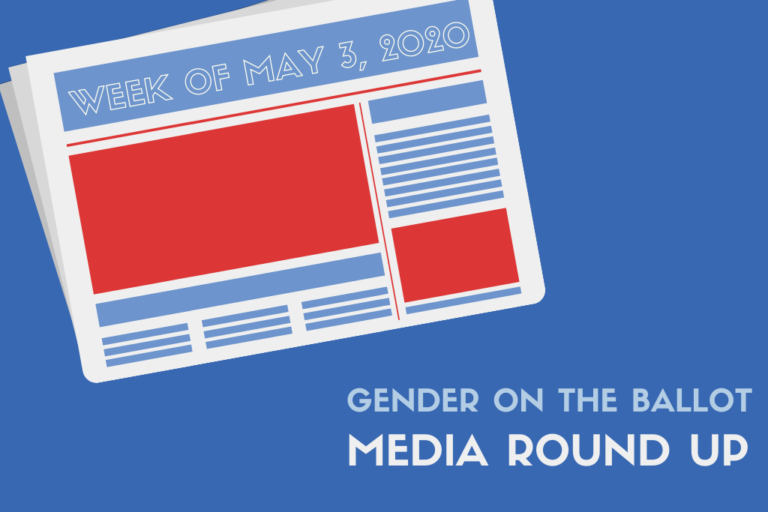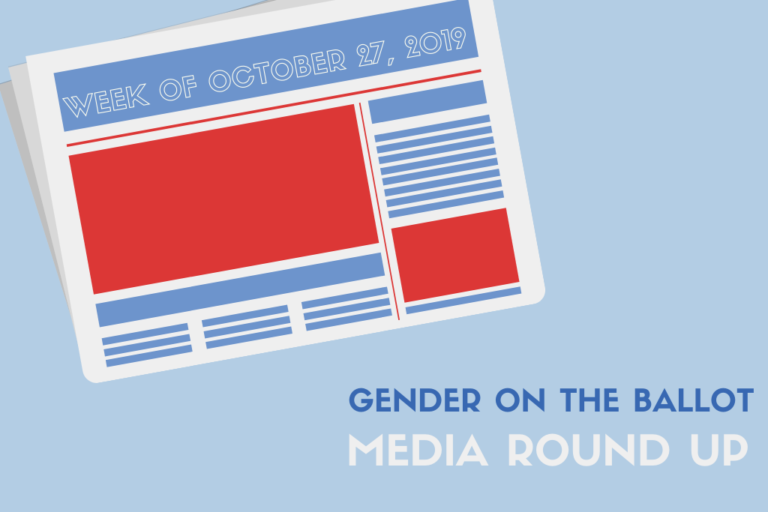Happy Friday! Welcome to our Media Round Up. Each week we’re collecting and sharing our…
Media Round-Up: Week of October 3rd

Happy Friday! Welcome to our Media Round Up. Each week we’re collecting and sharing our favorite gender + politics stories. Here’s what caught our eye this week:
North Adams is about to elect its first woman as mayor — what took so long?
Greta Jochem, The Berkshire Eagle
Almost forty years ago, Frances Buckley tried to become North Adams’ first woman mayor. Buckley had already made history in January of 1981 as the first woman to become president of the North Adams city council. After losing her mayoral bid with about 39% of the vote, Buckley strongly believed that her gender had played a role in the election. Today the legacy of Buckley’s mayoral bid lives on with two women—Lynette Bond and Jennifer Macksey—on the general election ballot to become the mayor of North Adams this November.
“‘It’s really exciting for me to think that we’re finally going to have a woman [as] mayor,’ Buckley said in September, on the eve of the preliminary election, while sitting in her North Adams living room.”
Read the full story here.
Black woman in rural Texas struggles with process to vote, advocates say system is unfair
Alex Presha and Briana Stewart, ABC News
Eighty-two-year-old Texas resident Elmira Hicks submitted her voter registration application by the deadline of October 2nd; despite this, she worries that her vote will not be counted. Hicks has not been able to update her driver’s license in over a year because she does not have a birth certificate, which she needs to verify her identity. Hicks and her daughter, Jonita White, received a court ordered birth certificate. When following through, the Office of Vital Statistics rejected the court order due to Hicks and White filling out an outdated form. This is a problem that many elder Black residents face due to lack of record keeping during the birth of their generation. Without the proper documentation, this likely leaves an entire population unable to vote.
Read the full story here.
Snapchat introduces tool to help young people run for office
Kalhan Rosenblatt and Lauren Wilson, NBC News
In 2020, Snapchat helped over one million users register to vote and more than half of them were first time voters. Snapchat is taking their involvement in the political realm a bit further by launching Run for Office, a new tool to teach young people that have political ambitions how to run for office. Snapchat users can nominate themselves or a friend for political office, then they enter their zip code to find the local races in their area. From there, users highlight the issues they are most passionate about and then the app will show the available office positions in that focus area.
Read the full story here.
These women marched for the right to abortion before Roe v. Wade. Now, they’re doing it again.
Julianna McShane, The Lily
On Saturday, October 2nd thousands of people across the nation gathered for the March for Reproductive Rights. This fifth annual Women’s March was in response to Texas passing Senate Bill 8, a bill banning abortions after six weeks. Among those marching in protest of the bill were women who marched for abortion rights before Roe V. Wade in the early 1970s. These women reflect on the protests they attended during that time and feel as though the current state in America regarding abortion rights isn’t too far off from what it was back then.
Read the full story here.
More women are serving life sentences. Experts are trying to determine why.
Candice Norwood, The 19th*
“When it comes specifically to the rise of long-term sentences like life without parole, prosecutors and judges may not consider women’s past trauma, the circumstances surrounding their crimes or even a woman’s level of involvement before bringing charges or making a sentence, according to the report.”
The rate at which women are serving life without parole is not only increasing, but also growing at a faster pace than men serving life sentences in prison. While experts try to figure out the reasoning behind this steady increase, many believe that one of the key factors is lack of institutional support for women.
Read the full story here.






